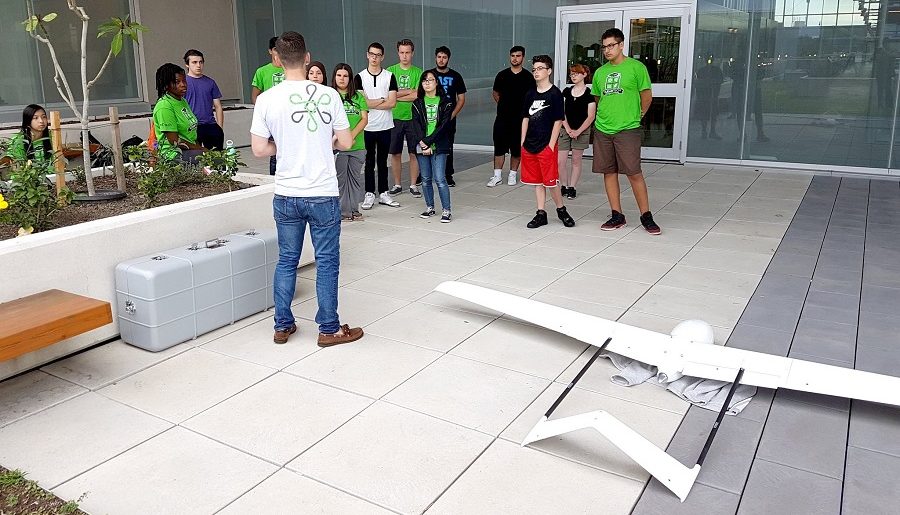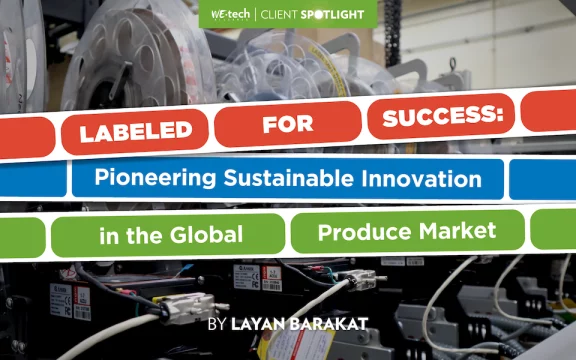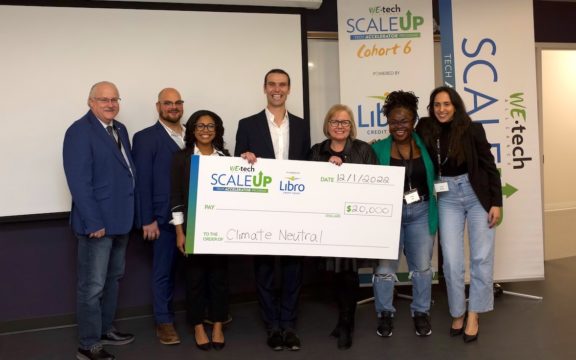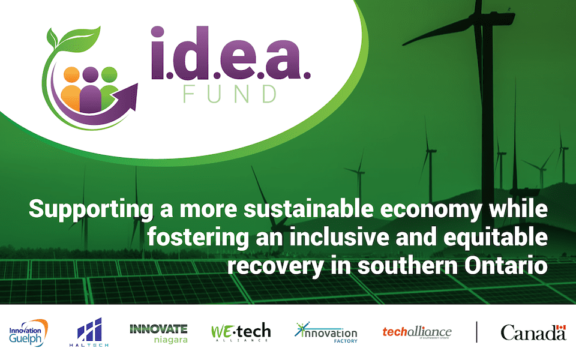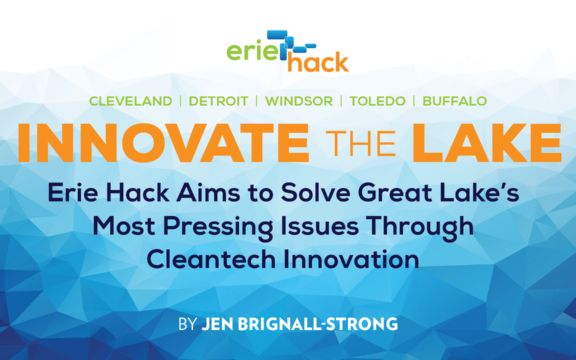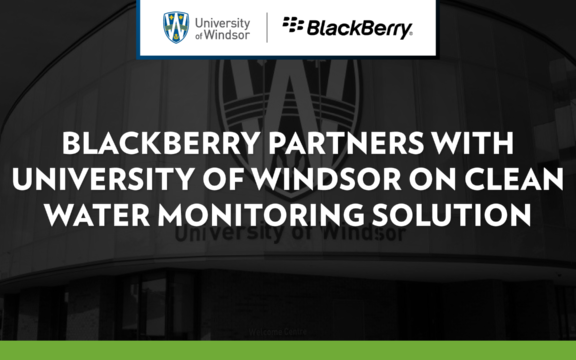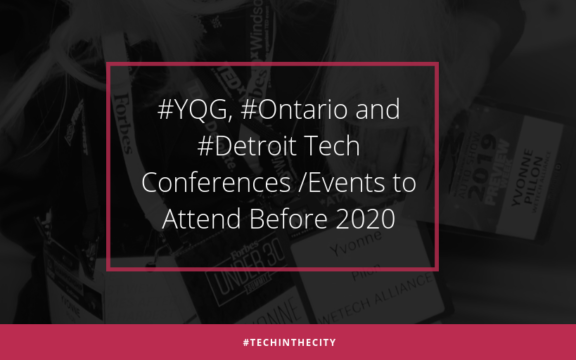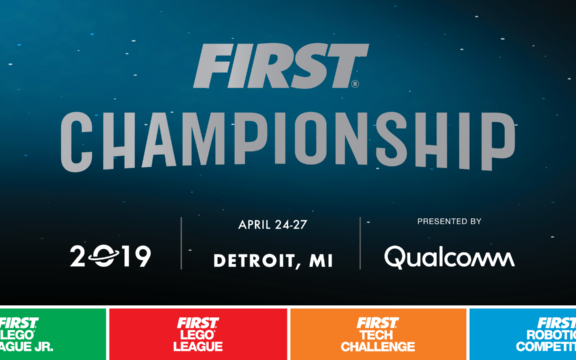
Monday, July 10th – Envirodrone
Ryan Cant
Today we had the opportunity to hear from Ryan Cant, the founder of one of Windsor’s most innovative companies – Envirodrone. After receiving a bachelor’s degree in environmental & resource science from Trent University, Ryan worked for two years in private industry. He talked about how this real-life experience helped him in his future by demonstrating to him the policies companies used and the way operations were conducted. He then moved back to Windsor and gained an interest in UAVs, or Unmanned Aerial Vehicles.
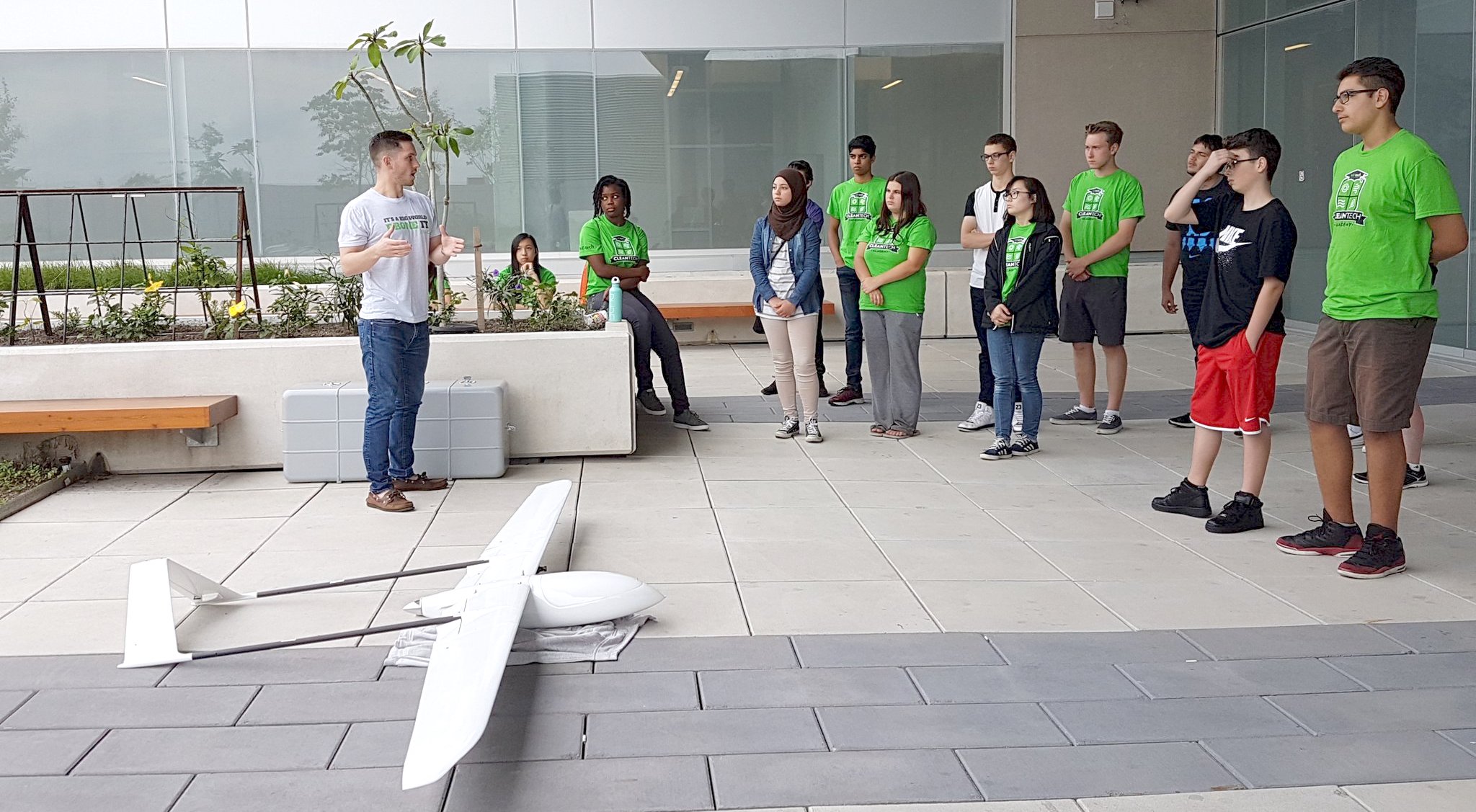
Introduction to Envirodrone
Ryan eventually founded his own company, Envirodrone, which uses drones commercially to benefit a variety of industries. We had the chance to see one of his drones in front of him while he told us about the different aspects of his company and how he has developed it over the past two years. The company is currently working towards full release of its services, since they have had to do a lot of testing to determine the best way to operate the drones and its different capabilities.
Technology
Ryan told us a lot about the technology used in the drones; there are two main categories of drones – fixed wing and rotary. The rotary design is what most people think of when they hear the word drone, apart from a military design. The rotary drones have multiple rotors that turn like a helicopter. Envirodrone employs the fixed wing drones primarily, which look a lot more like a normal aircraft. The fixed wing drones have a longer flight endurance, so they can collect more data without having to recharge, and also can carry a heavier payload of equipment for surveying.
Purpose
Envirodrone is planning to use the drones mostly for agricultural surveys, since it is a major industry in our region. Farmers would be able to visualize their fields from above with high-quality and inexpensive data that would be provided by overhead drones. Ryan also told us about the six major fields which drones are being targeted towards: agriculture, aggregate (quarries and mining of rocks), construction, mining, energy (oil & gas), and geological. Drones are very useful and offer different capabilities compared to regular aircraft since they can move more slowly to collect more high-quality data, as well as flying safely at a lower level so that they can capture all of the fine details. Finally, and very importantly for the business, drones are significantly cheaper than aircraft since they do not require a pilot or aviation fuel.Ryan was a superb example to us about how far you can come in today’s world if you work hard for something you are interested in. He also conducts research at the University of Windsor, which is a great example of how private start-ups can coordinate with researchers to further technologies and achieve common aims. They are hoping to develop advanced sensors that will be superior to the currently available off the shelf systems. He was very knowledgeable about everything he talked about and we could all tell that he is truly passionate about drones. We had a great time listening to Ryan speak about Envirodrone and how it came to be!
Summary
Ryan was a superb example to us about how far you can come in today’s world if you work hard for something you are interested in. He also conducts research at the University of Windsor, which is a great example of how private start-ups can coordinate with researchers to further technologies and achieve common aims. They are hoping to develop advanced sensors that will be superior to the currently available off the shelf systems. He was very knowledgeable about everything he talked about and we could all tell that he is truly passionate about drones. We had a great time listening to Ryan speak about Envirodrone and how it came to be!
 Find out what else made the Deans List in Marcus’ daily CleanTech Academy recaps:
Find out what else made the Deans List in Marcus’ daily CleanTech Academy recaps:
DAY 1 DAY 2 DAY 3 DAY 4 DAY 5 DAY 6
Marcus Deans currently attends Académie Ste Cécile International School in Windsor and is looking forward to learning more about the technology and business world as part of WEtech Alliance. Outside of school, Marcus volunteers with the Canadian Cancer Society, the WindsorEssex Community Foundation, and the City of Windsor. He has also served in several leadership positions at youth-run companies as part of Junior Achievement. Marcus also enjoys science and has ranked internationally in youth science competitions as part of Team Canada.
He’ll be with us throughout the summer and will be reporting on his experience in our inaugural CleanTech Academy class through his CleanTech Blog posts.

